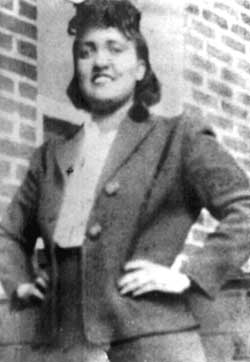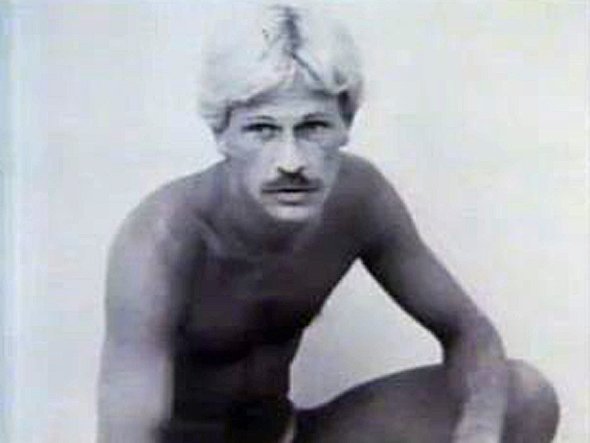A Drama of Medicine & Man
In another life, I could have been a doctor, a medical researcher, someone spending a lifetime in the lab finding ways, meanings, solutions to diseases and maladies. I say this because I find medical history, the progression and discovery and trials and missteps, to be wildly fascinating (but honestly, fascination doesn't equal brilliance in that field, let me be honest with myself). Part of it is the race-against-time nature of finding a cure for a sick person, or many sick people. It makes for a fast-paced kind of real-life mystery, and can also break your heart more effectively than any love story or fictitious depiction of loss, heartache, grief.
 It is real human drama, watching medical history unfold, shuddering at the things we did to treat cancer just sixty years ago (like place rods of radioactive chemo medicine up a woman's vagina to treat cervical cancer--in the case of Henrietta Lacks in 1951). It is vivid human drama seeing thousands of gay men die of mysterious diseases, all with the same immune deficiency, the massive epidemic only seriously considered and properly funded after heterosexual people began getting it, and dying from it (HIV/AIDS).
It is real human drama, watching medical history unfold, shuddering at the things we did to treat cancer just sixty years ago (like place rods of radioactive chemo medicine up a woman's vagina to treat cervical cancer--in the case of Henrietta Lacks in 1951). It is vivid human drama seeing thousands of gay men die of mysterious diseases, all with the same immune deficiency, the massive epidemic only seriously considered and properly funded after heterosexual people began getting it, and dying from it (HIV/AIDS).
Almost without conscious thought, I have read three books in the last six months on medical history, all three enthralling, and with stunning casts of characters--doctors, researchers, patients, government and elected officials, journalists, insurance companies. We sit on the other end of the story, knowing what "happens" at the end of the sagas and what has evolved in the field of medicine and disease control, and this gives us an advantage on the people whose lives, discoveries, and decisions play out for us on the pages of history. We know which procedures will end badly, or which will prove miraculous cures, or which doctors and politicians will later be discredited or heralded as heroes.
It is almost the same way we look at medical practices now, imagining ourselves on the very cusp, the cutting edge of innovation, or medical breakthroughs, of cures and solutions without error. But we are humans, created procedures on solid research data, but apt to err all the same. Shannon Brownlee, author of Overtreated: Why Too Much Medicine Is Making Us Sicker and Poorer, gets to just that point in how we view the medical field, some impenetrable, foolproof tower, and tribute to human medical achievement:
... We live in the age of science, after all. We think the difference between experimental and standard care is well-defined; that doctors adopt new medical advances on the basis of valid evidence; that new treatments represent improvement over the old. We look back at the history of medicine and its litter of discarded treatments with a sense of superiority, smug in our belief that superstition and ignorance have been banished from medicine. Until only a few generations ago, disease was thought to arise out of either an imbalance among the four humors or a contagion in the blood. Treatments were based on this faulty paradigm, and thus it seemed to follow, for example, that cutting a vein and letting the blood run out would rid the body of what ailed it and restore balance. Patients often did feel better after a bloodletting, or at least different, while the doctor could feel the satisfaction of having done what was right according to the prevailing conceptions of disease. We now know that bloodletting at best did nothing and at worst hastened death.
It is important, essential, to remember that we also lie within the timeline of medical history, as it unfolds and we learn more about disease, viruses, and the human body, and seek new methods of treating all three. The stories behind how we've gotten where we are now humble me, remind me of our fragility, our hubris, our good intentions--and not in an all-bad or all-good way. Modern medicine has improved our lives, given us the tools we need to protect ourselves from the things we can, saved the life of at least one person you know, and probably more than one.
 Although it wasn't very long ago, the United States medical field--both private and public players and pocketbooks involved--did an awful number on handling the HIV/AIDS crisis. Randy Shilts writes in And The Band Played On: Politics, People, and the AIDS Epidemic: "In those early years, the federal government viewed AIDS as a budget problem, local public health officials saw it as a political problem, gay leaders considered AIDS a public relations problem, and the news media regarded it as a homosexual problem that wouldn't interest anybody else. Consequently, few confronted AIDS for what it was, a profoundly threatening medical crisis." Shilts describes this as "a tale that bears telling, so that it will never happen again, to any people, anywhere."
Although it wasn't very long ago, the United States medical field--both private and public players and pocketbooks involved--did an awful number on handling the HIV/AIDS crisis. Randy Shilts writes in And The Band Played On: Politics, People, and the AIDS Epidemic: "In those early years, the federal government viewed AIDS as a budget problem, local public health officials saw it as a political problem, gay leaders considered AIDS a public relations problem, and the news media regarded it as a homosexual problem that wouldn't interest anybody else. Consequently, few confronted AIDS for what it was, a profoundly threatening medical crisis." Shilts describes this as "a tale that bears telling, so that it will never happen again, to any people, anywhere."
Our medical past certainly belies the mistakes and hardships that can occur no matter how "developed" and wealthy a society may be. And it is good to be aware of our humanity, and our mistakes, so that we don't go thinking too much of ourselves. We're far from the end of the tale of human medical science and discovery.
Reading list:
Rebecca Skloot, The Immortal Life of Henrietta Lacks
Randy Shilts, And The Band Played On: Politics, People, and the AIDS Epidemic
Shannon Brownlee, Overtreated: Why Too Much Medicine Is Making Us Sicker and Poorer
Also, read a blog post about so-called "Patient Zero" of AIDS, Gaetan Dugas: "We all know the plague is coming"

